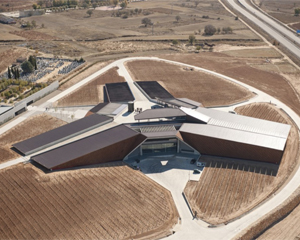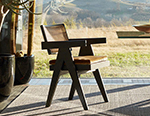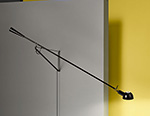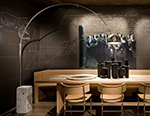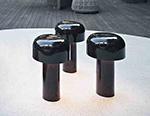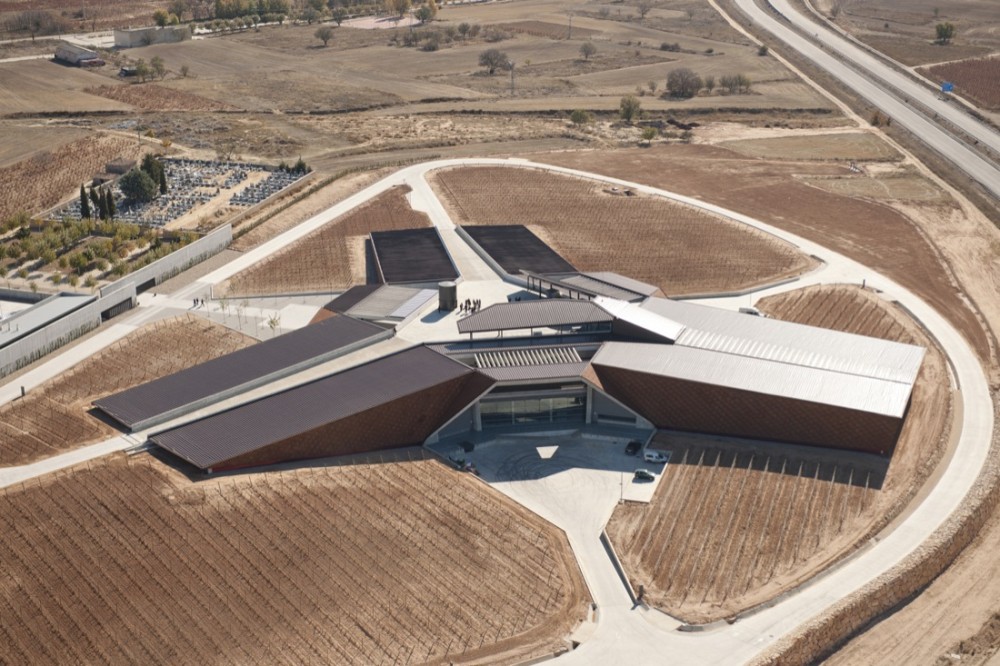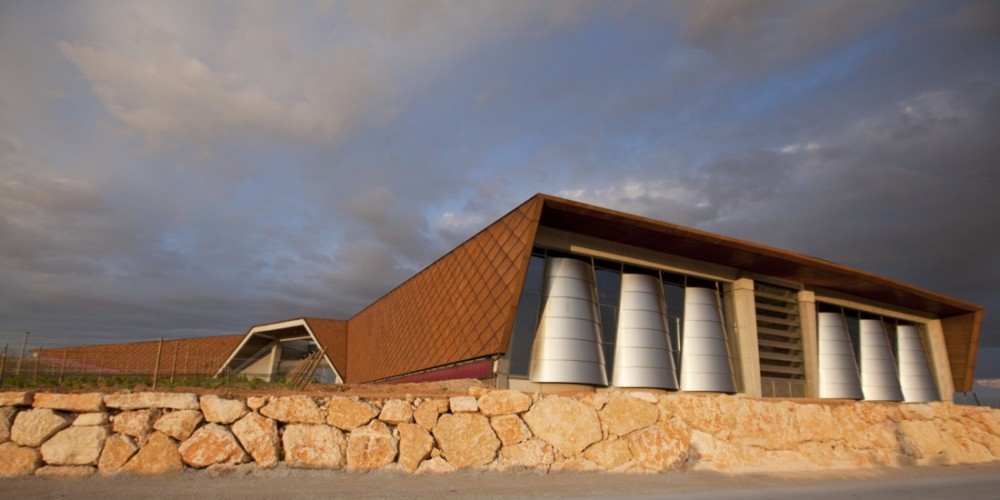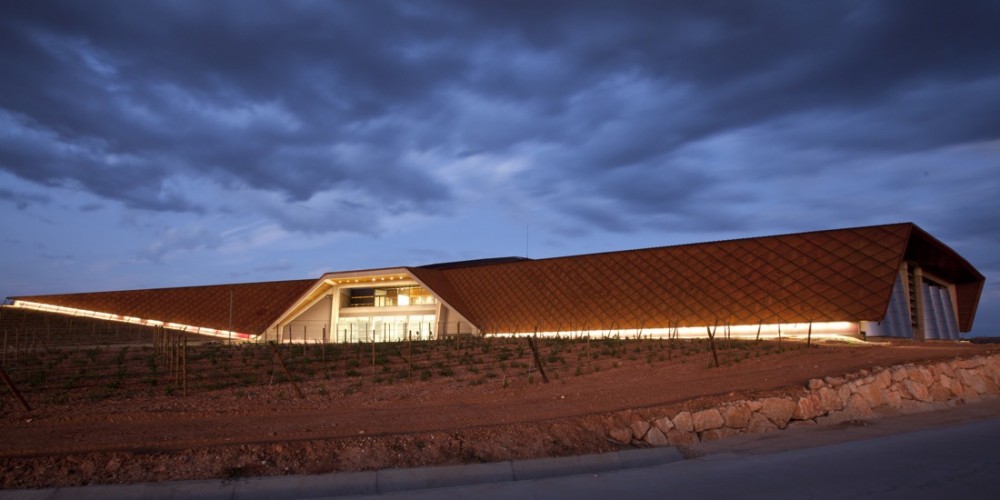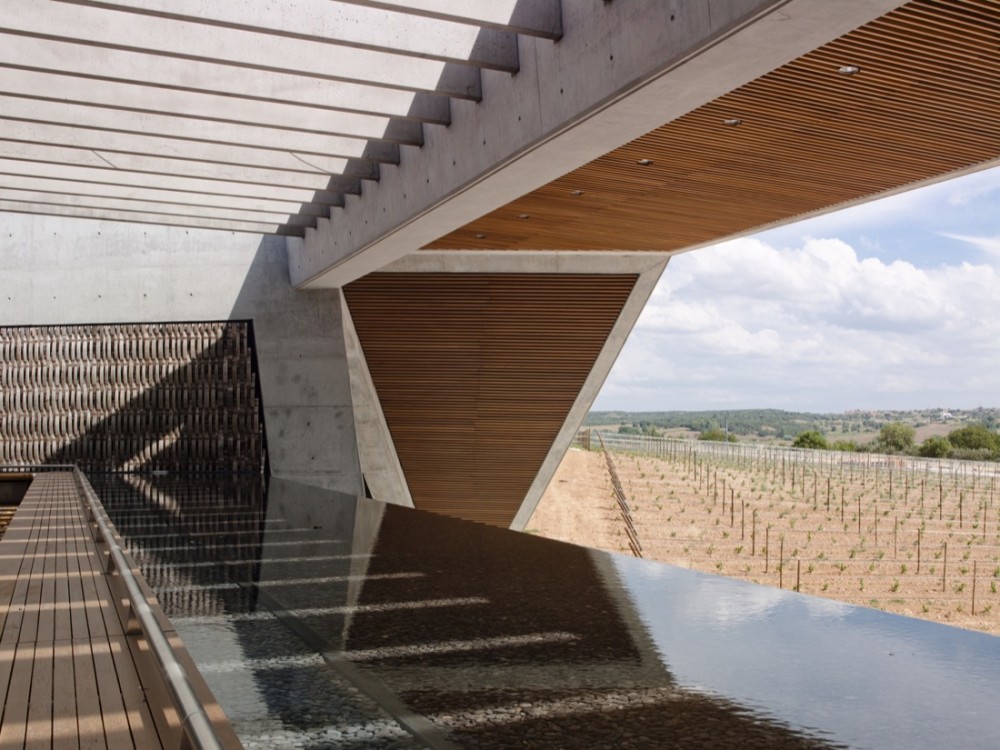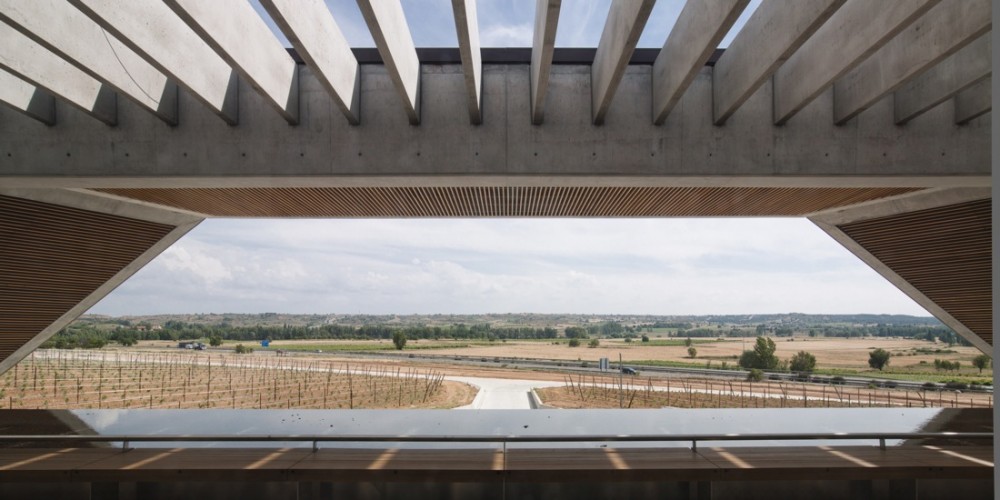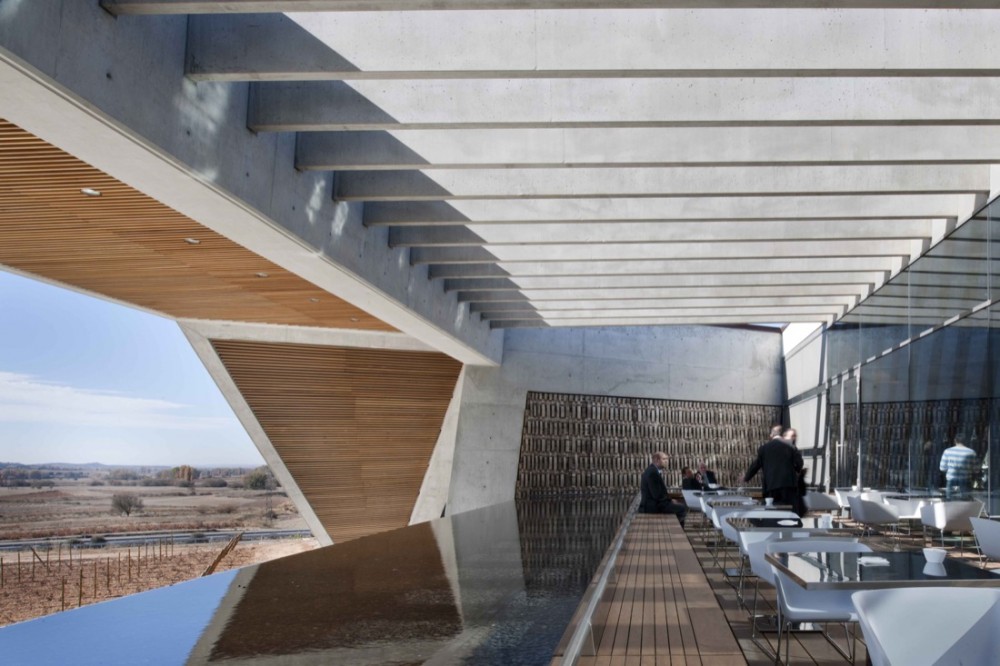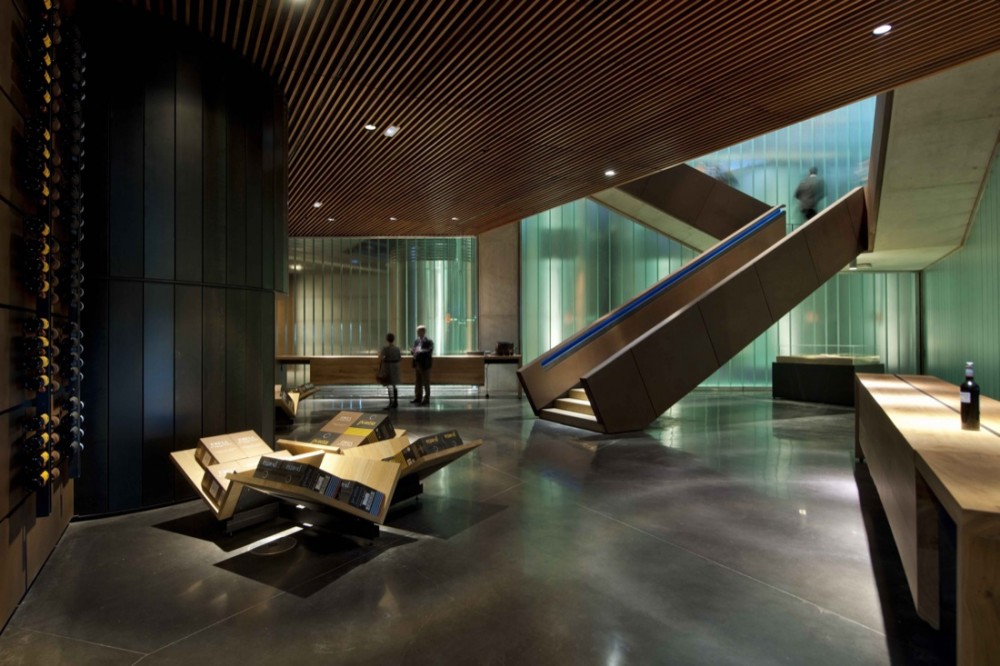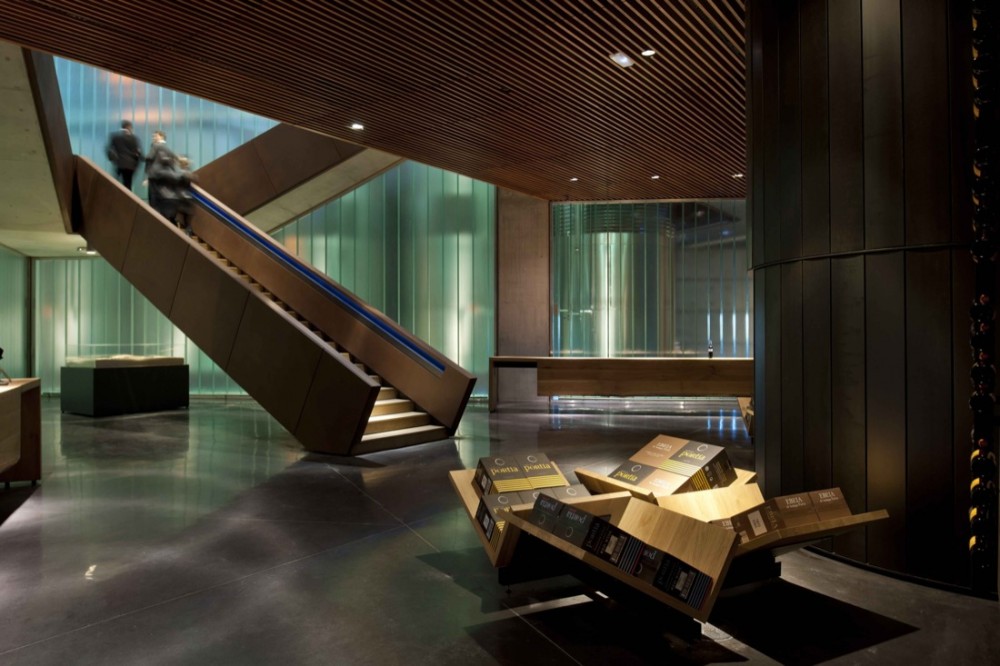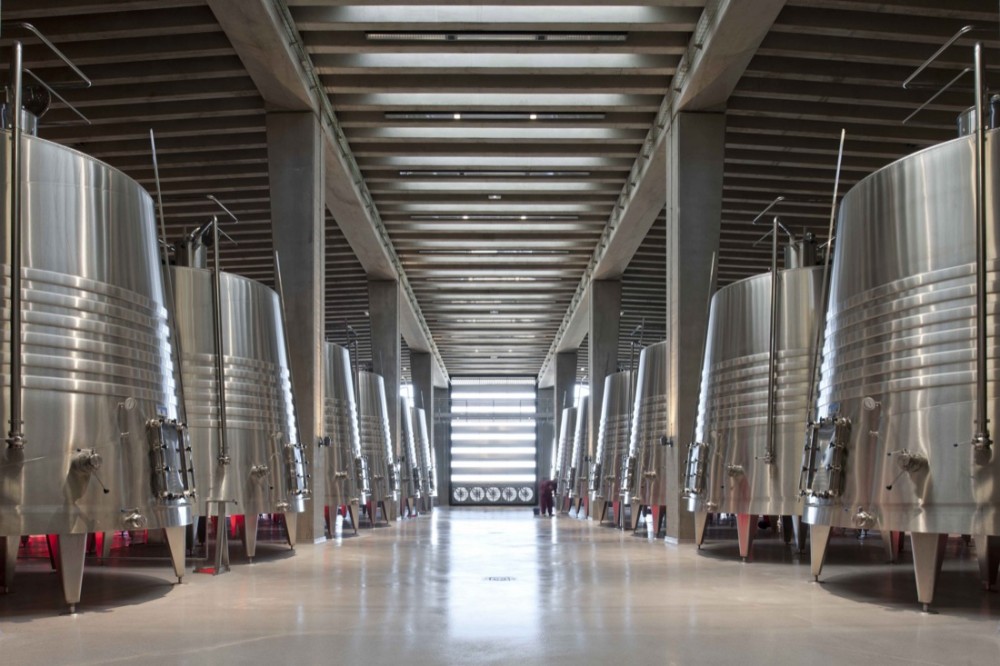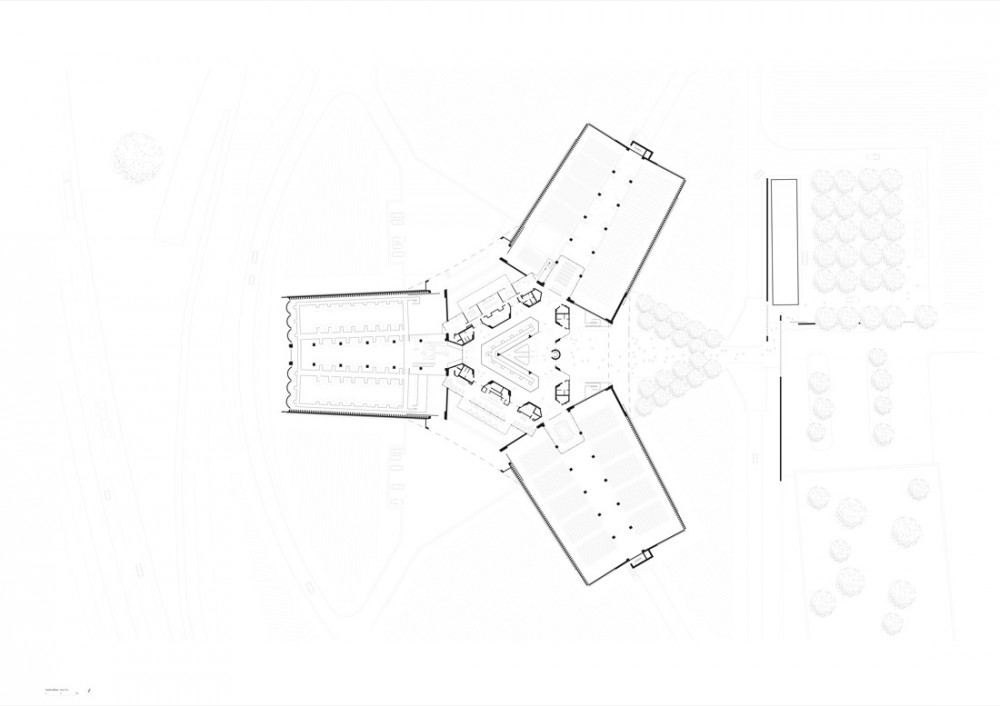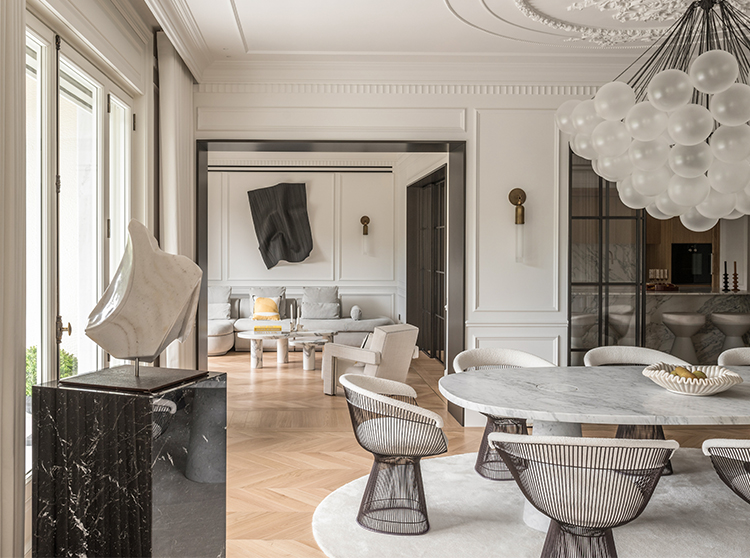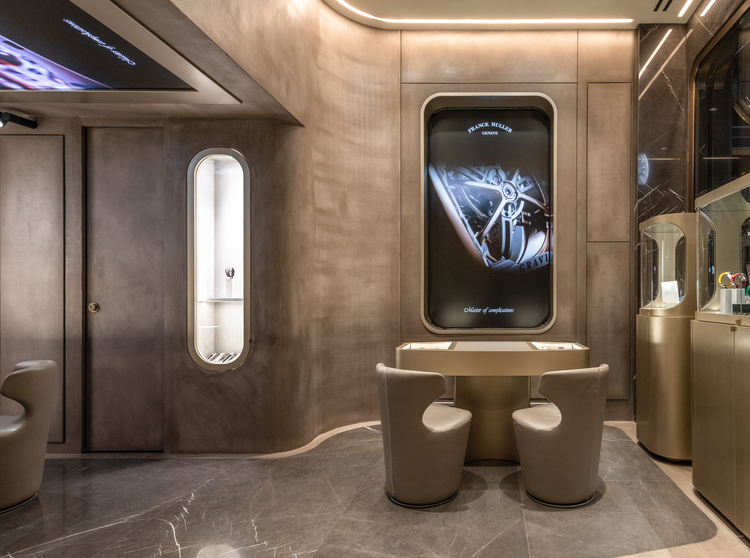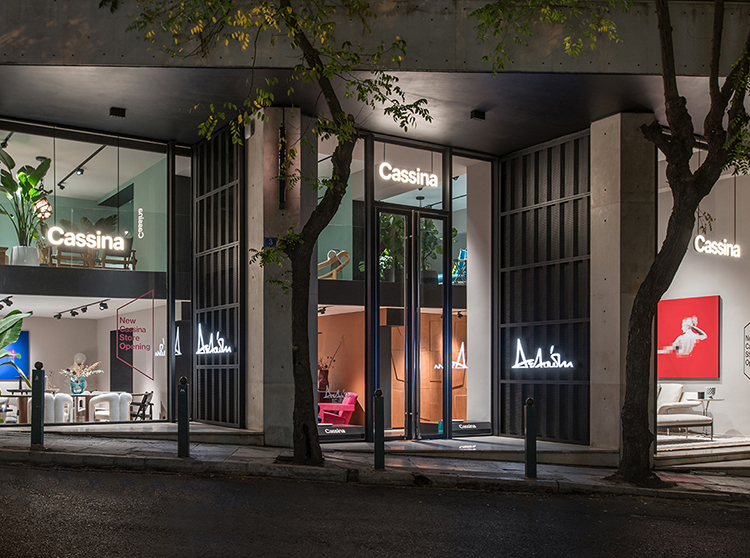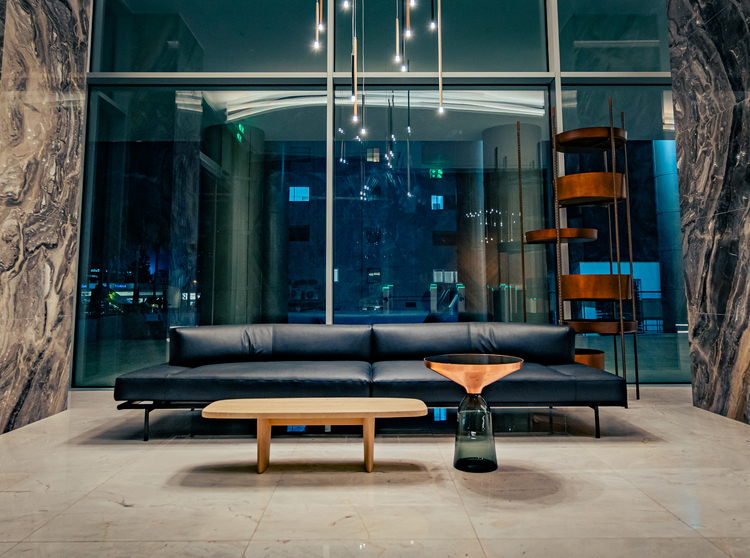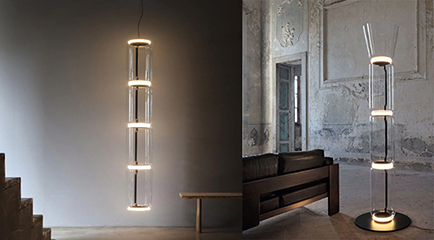Bodegas Portia is a new winery for the Faustino Group, located in the Ribera del Duero, one of Spain’s foremost wine-producing regions. The building’s trefoil plan expresses the three main stages of production: fermentation in steel vats; ageing in oak barrels; and maturation in bottles; at its core is an operations hub, from which all stages of the production process can be controlled. After harvesting, the grapes are delivered to the winery via a road that rises on to the roof, where they are dropped directly into the hopper. Gravity then helps to move the harvest around the building, maximising energy efficiency and minimising damage to the grapes. The fermentation wing is exposed to the outside, allowing carbon dioxide to escape naturally.
The wings containing the barrel and bottle cellars are partly dug into the sloping site. Embedding the building in this way helps to create the most favourable conditions for the ageing process and is an essential part of a passive environmental strategy, which allows the building to exploit the thermal properties of the earth, in conjunction with the thermal mass of the concrete structure to regulate the internal climate. The roof canopy shades the glazed atria and exposed vats and incorporates photovoltaics. The structure is clad in Corten steel shingles, whose colour complements the natural tones of the vineyards.
Reflecting the growth in wine tourism and its importance to the industry, a raised public gallery at the heart of the winery extends into glazed mezzanine areas, allowing visitors to see the different stages of production. Between the wings, reception areas with terraces and water pools overlook the vineyards. Lined with slats from recycled wine barrels, the public areas evoke the rich tradition of winemaking in the region.
